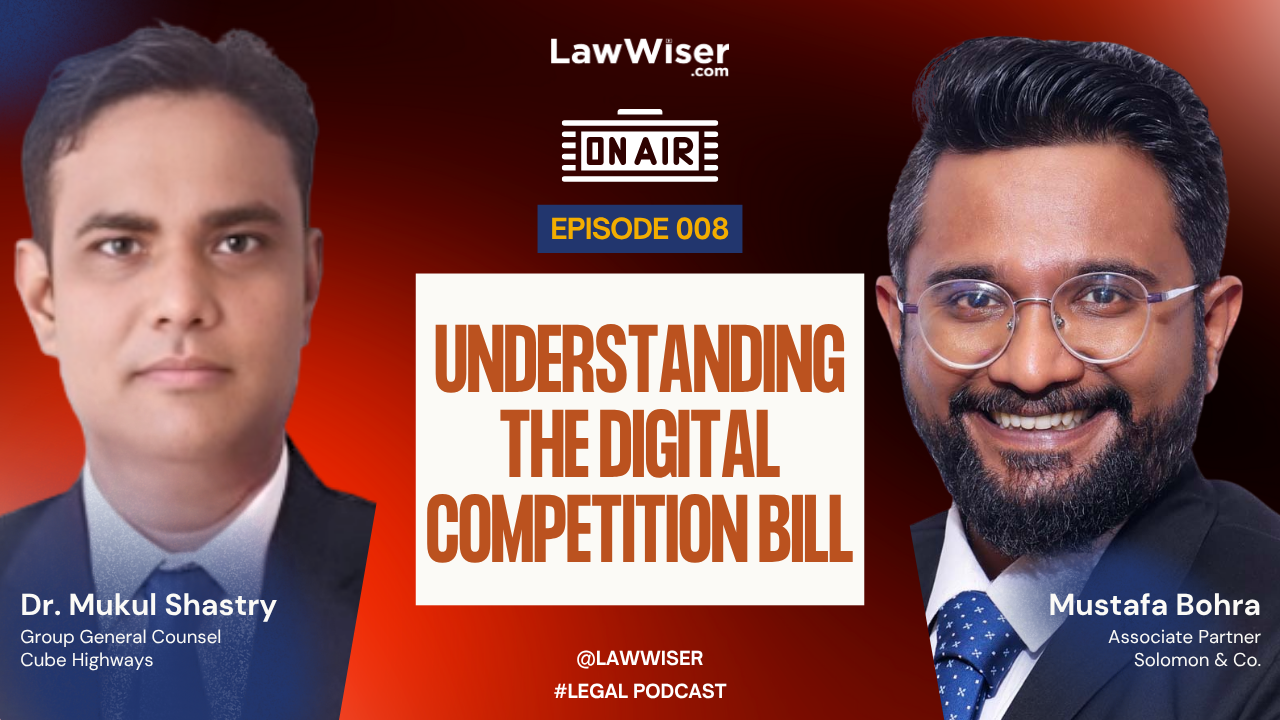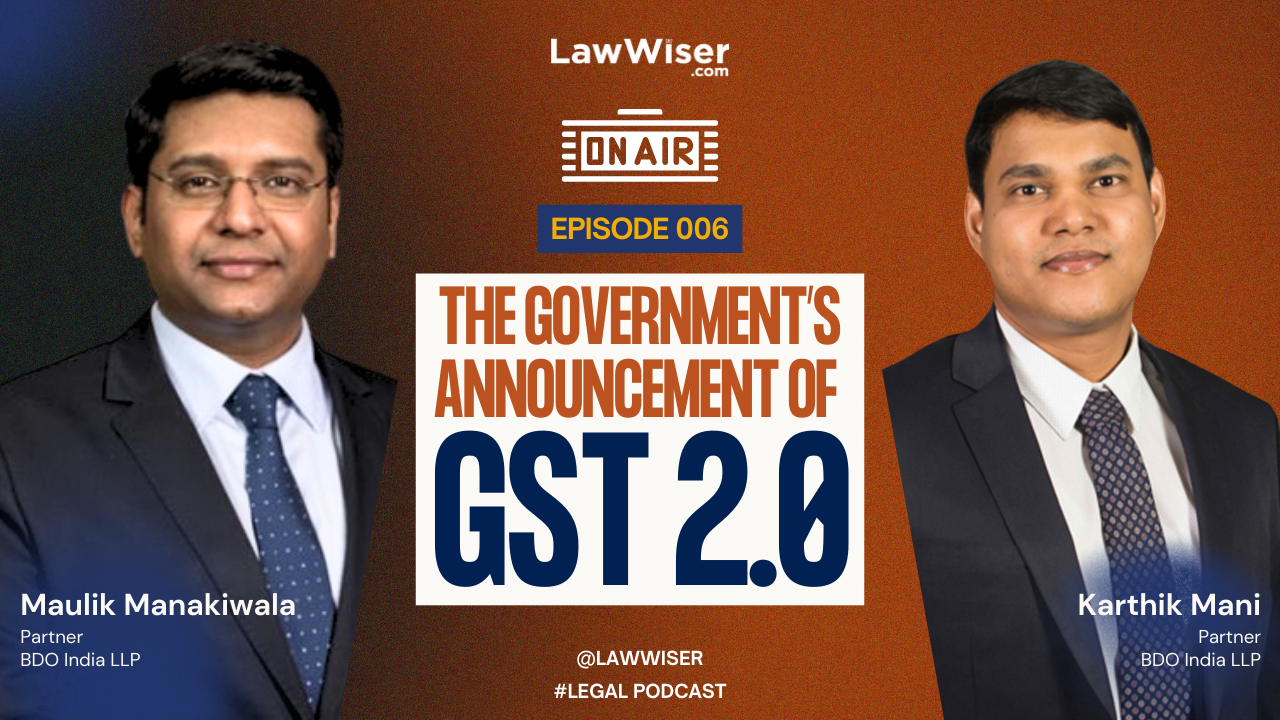QUICKBYTES – ONLINE CONTRACTS
Online contracts are valid and enforceable under domestic laws. Watch this episode featuring Anshul Bazari of #LawWiser, where he quickly explains what is an online contract.
INTRODUCTION TO ONLINE CONTRACTS
Have you wondered, how the businesses continued in the hard times of pandemic when even signing the contracts was not possible manually?!
The traditional way of handling the contracts requires a vast amount of manual work. Not only in the times of no manual handling but also in the normal scenarios of workplace, the time-consuming creating of contract has been completely or partially replaced by the online contract formation.
With the advanced use of internet and day-by day evolution of e-commerce, online contracts have become a complex but crucial part of businesses. Online contracts are that important in our lives, that they have reduced the turnaround time to 99% and increased the efficiency of employees by 20%.
WHAT IS AN ONLINE CONTRACT?
An online contract is an online version of the regular contract. In an online contract, the agreement is modelled, signed and executed electronically. Online contracts provide a convenient and time saving platform for the organisations to evolve around the legally binding agreements.
TYPES OF ONLINE CONTRACTS
Online contracts are used in everyday lives. We usually witness these types of online contracts.
- Shrink-wrap agreements are usually the licensed agreement applicable in case of software products buying. As soon as the users tera the packaging, the terms and conditions are enforced upon the user. These agreements are accepted by user at the time of installation of software from a CD-ROM, for example, Nokia pc-suite.
- Click- wrap agreements are web- based agreements which the assent or consent of the user by way of clicking “I Agree’ or “I Accept” or “Ok” button on the dialog box. In click –wrap agreements, the user basically have to agree to the terms and conditions for usage of the particular software. E.g., Agreement of ab online shopping site, etc.
- In a Browse wrap agreement, a regular user of a particular website deems to accept the terms of using the website and other policies of the website for continuous users of that website.
WHEN DOES THESE CONTRACTS COME INTO EFFECT?
The online contract comes into effect when it has all the elements of a regular valid contract. As provided in the Law of contract, there are some essential elements of a contact to become valid. Those essential elements are:
- Offer to be made- A contract, whether traditional or online, has to have an offer made by one of the parties which shows the invitation of making the offer.
- Consideration- Just like the regular contract, the online contract must have a valid and legal consideration along with lawful purpose for the offer made.
- Acceptance of the offer to be acknowledged- The acceptance of the offer does not make it a complete contract. It is actually the acknowledgment of the acceptance of offer which makes it complete to be considered as a contract.
- Mutual consents- the parties must have the mutual free consents to enter into a legally binding and valid agreement.
- Capacity to contract-The parties entering into an agreement shall have the legal capacity to become competent so that the contract does not go void.
In India, the section 10-A of the Information Technology Act, 2000 makes the online contract valid and enforceable. The shift in the formation and enforceability of online contracts owes to the initiatives of the active groups of the UNCITRAL Model law on electronic commerce.
IS AN ONLINE CONTARCT ACCEPTED AS AN EVIDENCE IN THE COURT OF LAW?
In India, where a major section of the society is not so much Digitalised, the concept of ‘Digital India’ is a far reach. People still do not feel secure while doing online based transactions. Another major issue is the nature of the law governing the electronic contracts.
The cases of frauds worldwide make the people hesitant to enter into any online transaction. Even if the IT Act, 2000 has legalized electronic contracts, there are no definite provisions mentioned in the Act.
For that reason, it is important to identify the evidentiary value of online/electronic contracts. The evidentiary value is recognised in the purview of various sections of Indian Evidence Act.
- Sec 65B of the Indian Evidence Act deals with the admissibility of electronic records as per which, an electronic record produced by the computer in printed, stored or copied form shall deemed to be a document and it can be admissible as an evidence in any proceeding
- Section 85A, 85B, 88A, 90A and 85C of the Indian Evidence Act provides the presumptions as to electronic records. Considering the importance of online contracts, Sec 85A was inserted later to confirm the validity of electronic contracts. Any electronic record in the form of electronic agreement is concluded and gets recognition the moment a digital signature is affixed to such record.
- The presumption of electronic contract is valid only in case of five years old record and electronic messages that will amount to the attraction of Section 85B, Section 88A and Section 90A of Indian Evidence Act
He also explains the general perspective, types of online contract,s and their evidentiary value in a court of law. #StayTuned for more interesting updates!
To get featured in more such conversations, write us on editorial@lawwiser.com











